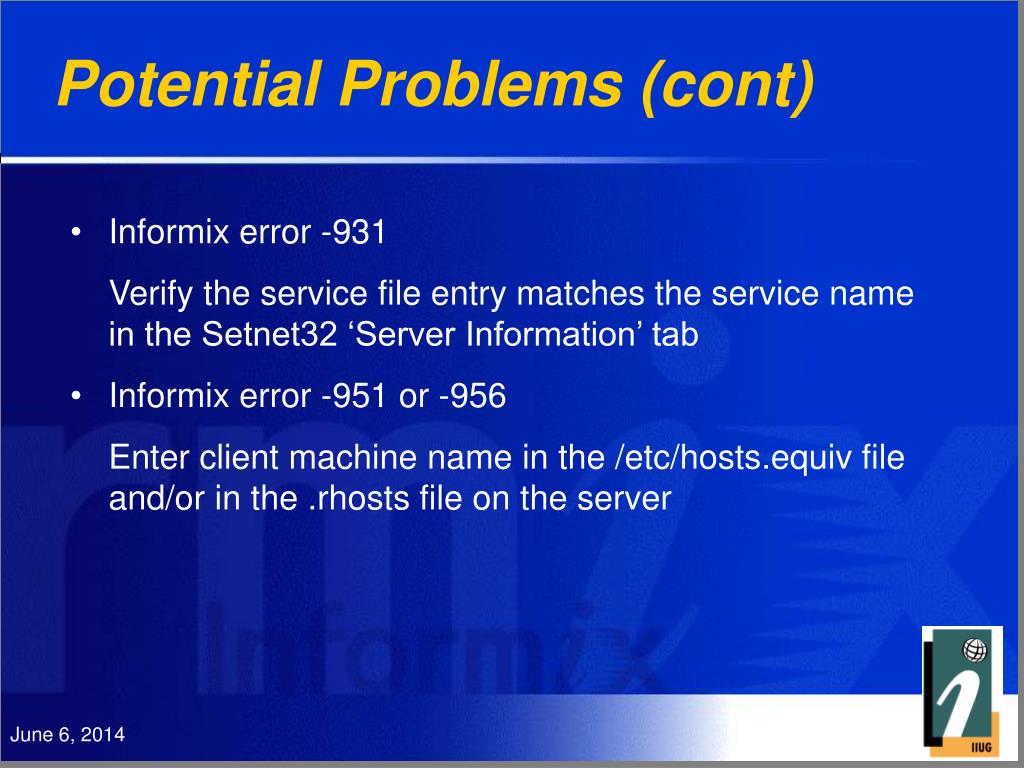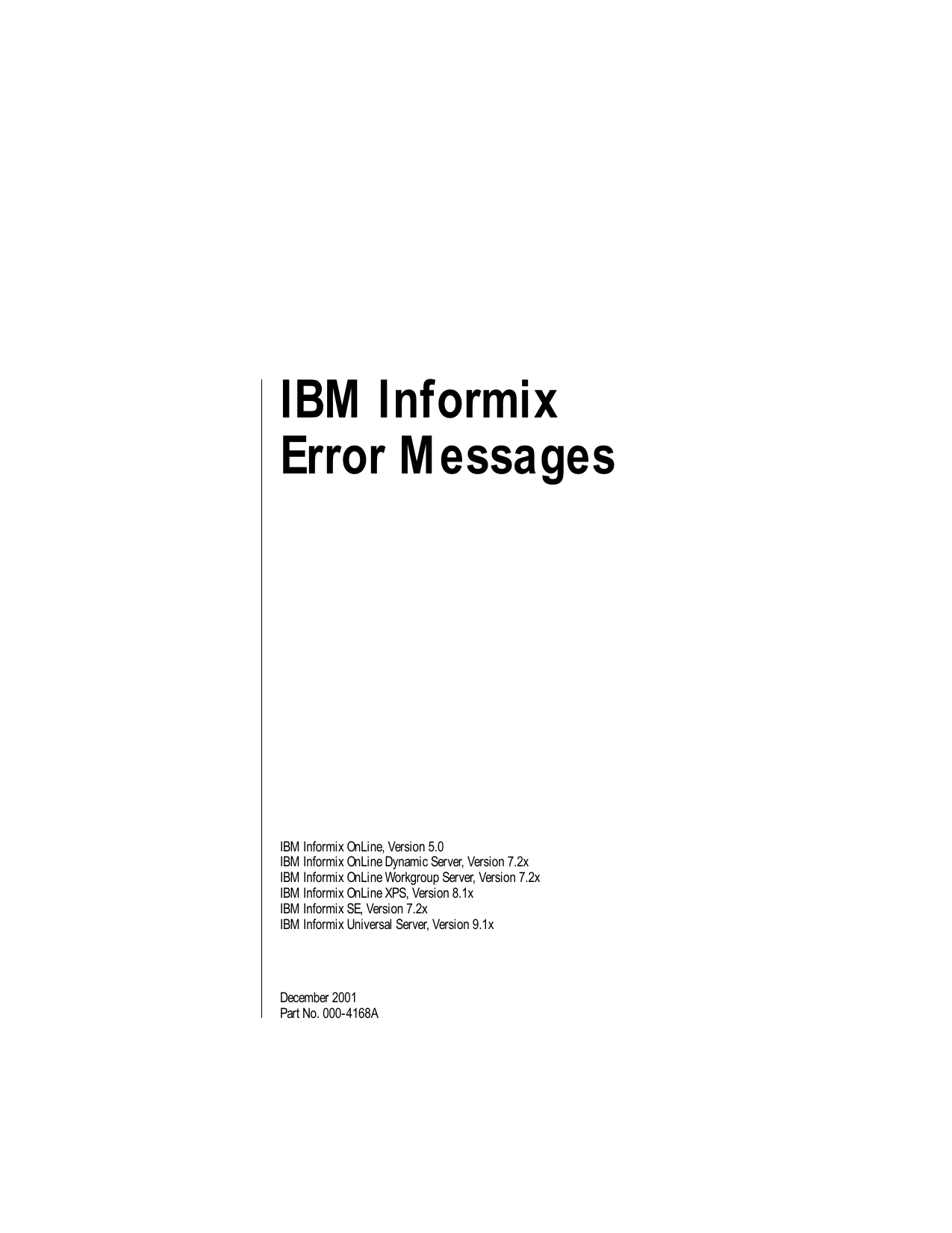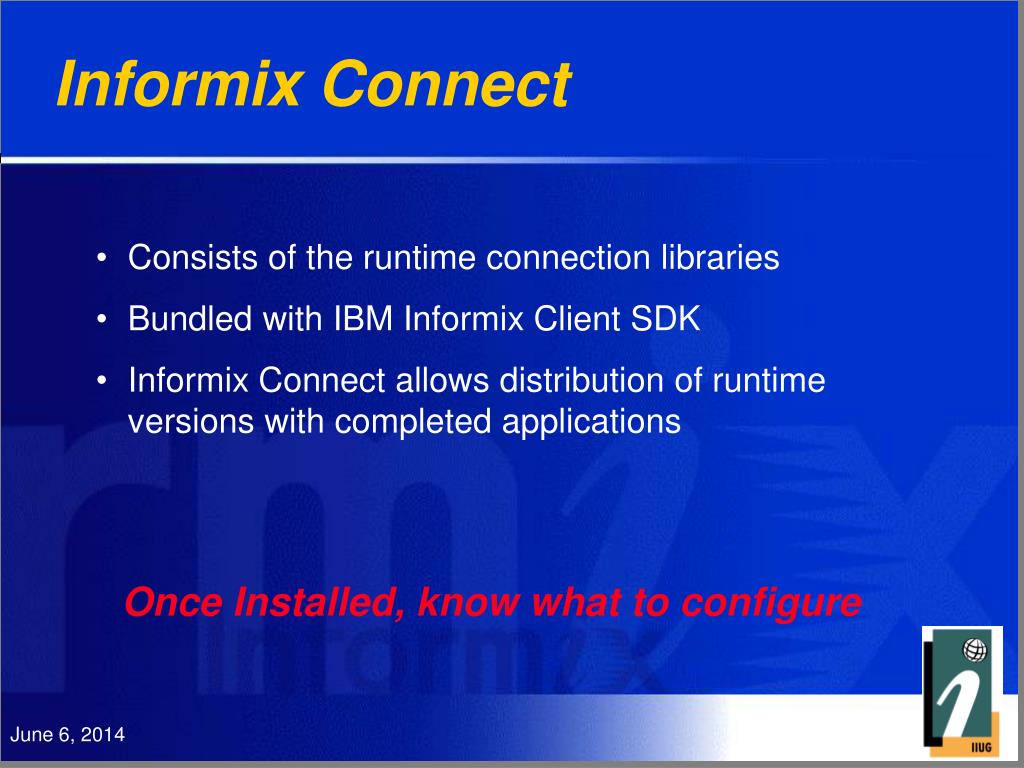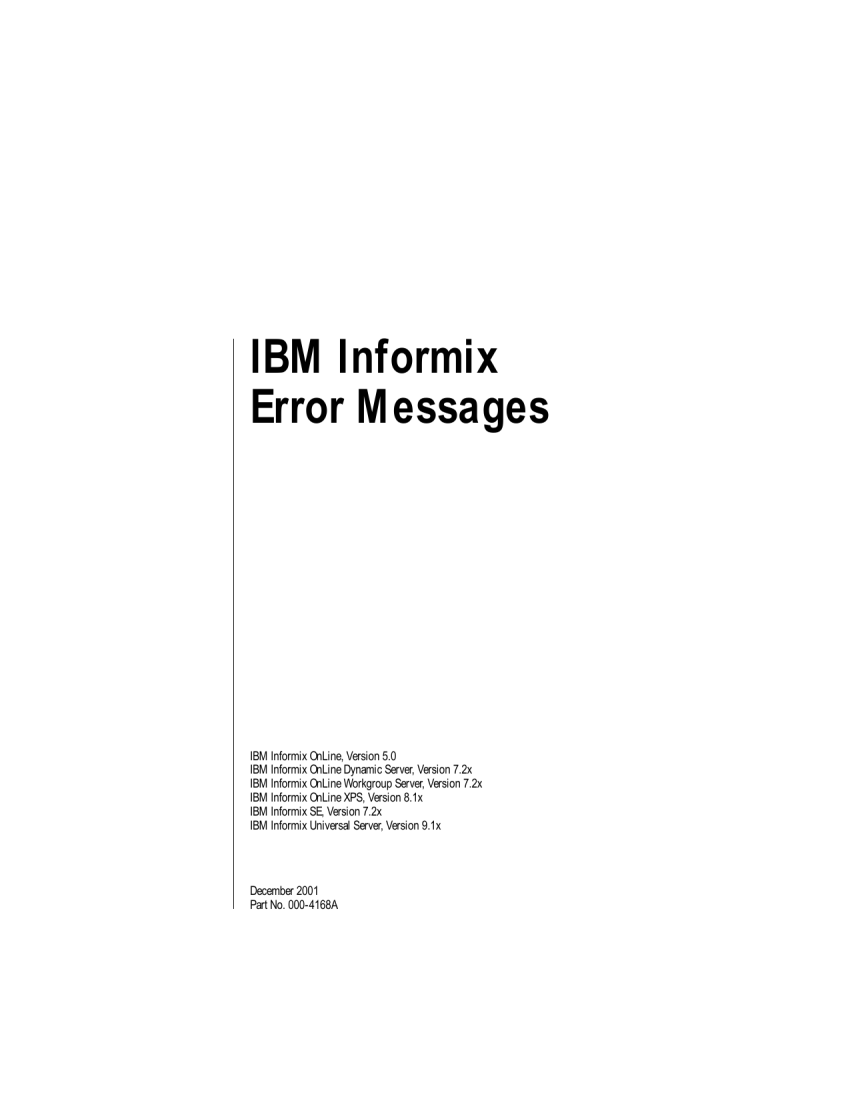Hope this blog post helps you if you see error informix 956.
Approved: Fortect
Informix error code -956 The database server does not trust the client name or client user. The selected database server does not trust the client computer or your user ID.
Approved: Fortect
Fortect is the world's most popular and effective PC repair tool. It is trusted by millions of people to keep their systems running fast, smooth, and error-free. With its simple user interface and powerful scanning engine, Fortect quickly finds and fixes a broad range of Windows problems - from system instability and security issues to memory management and performance bottlenecks.

[Product: Code: SSGU8G, Label: Informix Servers, Business Unit: Code: BU053, Label: Cloud and Data Platform, Component : “-”, “Platform”: [“code”: “PF002”, “label”: “AIX”, “code”: “PF010”, “label”: “HP-UX”, “code”: “PF016 “,” Label “:” Linux “,” code “:” PF027 “,” label “:” Solaris “],” Version “:” 11.1; 11.5; 11.7; 12.1 “,” Edition “:” “,” Line of Company “:” code “:” “,” label “:” “]
Problem
Resolve The Problem
If you try to connect to a remote database using dbaccess or another application, you will receive a -956 error:
The client-client name does not apply to /etc/hosts.equiv on the remote host.
This administration cannot be performed because the specified Remote Desktop Support computer does not recognize the name generated by the client computer (the local host where the name is returned from the hostname command). Client transactions are usually recorded in the /etc/hosts.equiv configuration file. The rhosts file on the remote computer might also need to be changed. For more information on these files and how to respect them, try man rhosts on a specific UNIX system. Contact the supervisor of the remote host to ensure that the brand of the client host is listed in the /etc/hosts.equiv file for the remote host in question. This message appears in types prior to 6.0.

The client or drive with the client name is not trusted by the data server.
The required database server takes into account not only the client computer or youruser ID. Ask your system administrator to put the computer as a trusted host and / or your user ID as a trusted user in the /etc/hosts.equiv .. rhosts file in your home directory on the remote computer. For more information, see the UNIX fan pages at HOSTS.EQUIV (5).

Alternatively, you will almost certainly specify your username and security explicitly in the USER clause of the CONNECT statement or in the .netrc file relative to your home directory on the client hard drive. For more information on the CONNECT statement, see the IBM informix SQL Guide: UNIX Syntax and Man Pages for NETRC (5) for more information on the .netrc directory. This message appears in version 6.0 and therefore later.
|
Product name |
Product version (s) |
Hardware vendor |
Operating system |
|
IBM® Dynamic informix® Server ™ |
|
All |
All |
x is the H, u, or F complexity level of your operating system.
Check the next computer on both the local remote control and the pages, determine if it matches the entries below, and try to connect again.
$ INFORMIXDIR / etc / sqlhosts (or $ INFORMIXSQLHOSTS file): DBSERVERALIASES_machineon_server machine_server serviceA
/ etc / hosts:
IPmachine_server machine_server
IPmachine_client machine_client
/etc/hosts.equiv :
+ user (login of the person who wants to establish a connection) / tt>
/ etc / services:
serviceA num_serviceA / tcp
serviceB serviceB_num / tcp
$ HOME / .rhosts:
IP_machine_cliente machine_cliente
IP_machine_server_machine_server
DBSERVERALIASES_machine_cliente onsoctcp machine_cliente serviceB
/ etc / hosts:
IPmachine_server machine_server
IPmachine_client machine_client
/etc/hosts.equiv:
+ user (login of the person who wants to connect)
/ etc / services :
serviceA num_serviceA / tcp
serviceB serviceB_num / tcp
$ HOME / .rhosts :
IP_machine_cliente machine_cliente
IP_machine_server machine_server 
Speed up your computer's performance now with this simple download.


